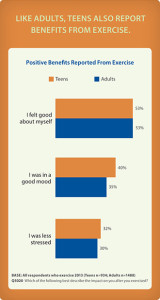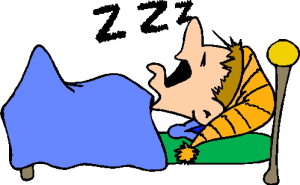All my life I’ve played sports, so I never really had to worry about fitting in a gym session. It was a big transition coming to Penn State and having to plan out what times I could go/ if I could even fit it in with my busy schedule. I started to see a change in my body that I didn’t like, so all I cared about was getting my high school self back. What I never thought about were the other benefits that exercise brings for your body. I wanted to learn more about how exercise can really help your body in more ways than just looks.
According to the Mayo Clinic, there are 7 benefits of regular physical activity. The first one is that it controls weight. I think this is the most obvious one that people automatically think of. The second reason to exercise is that it fights diseases. It can help with heart disease, high blood pressure, and cardiovascular disease. #3: improving your mood. Exercise triggers a series of chemicals in your brain that relax you and can improve your mood. Reason 3 lingers into reason 4. Since exercise improves your mood, it also improves your energy. It obviously gives you more muscle and stamina, and these things cause your lungs and heart to function better, increasing energy. #5: better sleep. Exercise helps you fall asleep faster and be able to achieve a deeper sleep. Number 6 states that exercise can improve your sex life. Youll be more energized and feel more confident in yourself. Lastly, It gives you away to enjoy life and have a new hobby.
“Stress in America” did a survey to see what percent of Americans participated in exercise. “The survey found that more than one-third of adults (37 percent) report exercising less than once a week or not at all. Only 17 percent of adults report exercising daily.” Knowing the benefits of exercise may motivate people to work out more. “”Fifty-three percent of adults say they feel good about themselves after exercising, 35 percent say it puts them in a good mood and 30 percent say they feel less stressed.” This is a great statistic for college students. Stress is such a horrible thing that can cause awful things to happen to our body.

Knowing that exercise can help fight these issues, why not take an hour out of your day to exercise. It can help you be calm and clear your head, so you can study smarter, not harder. (like Andrew says)



 n games with no pressure or had some good competition, but once it came to playoff games I was always a mess. I didn’t know what came over me, but I just became super stressed and wasn’t my normal self. Apparently this happens to many people and it become such an issue there are actually sports psychologists. My question is, if I would have had a sports psychologist, would it have helped me?
n games with no pressure or had some good competition, but once it came to playoff games I was always a mess. I didn’t know what came over me, but I just became super stressed and wasn’t my normal self. Apparently this happens to many people and it become such an issue there are actually sports psychologists. My question is, if I would have had a sports psychologist, would it have helped me?

 be interesting was the involvement of the parents in litigation vs. mediation. The graph clearly shows that when couples going through a divorce went through mediation instead of litigation, the child had much more involvement with both parents than just the one we live with.
be interesting was the involvement of the parents in litigation vs. mediation. The graph clearly shows that when couples going through a divorce went through mediation instead of litigation, the child had much more involvement with both parents than just the one we live with. A
A  their DNA cells into cancer cells because of the radioactivity. This is an extreme case, but also proves how dangerous this could be.
their DNA cells into cancer cells because of the radioactivity. This is an extreme case, but also proves how dangerous this could be.

 continuous cycle. As you might assume, this would not be possible for most humans. Our world works in a way where you do as much you can in a day then sleep for as much time you have left. These animals are essentially just taking naps, but do naps benefit humans?
continuous cycle. As you might assume, this would not be possible for most humans. Our world works in a way where you do as much you can in a day then sleep for as much time you have left. These animals are essentially just taking naps, but do naps benefit humans? all the medications that are already in the health community and more developing, you would think this number would be less. What if there is something else that could help treat depression?
all the medications that are already in the health community and more developing, you would think this number would be less. What if there is something else that could help treat depression?
